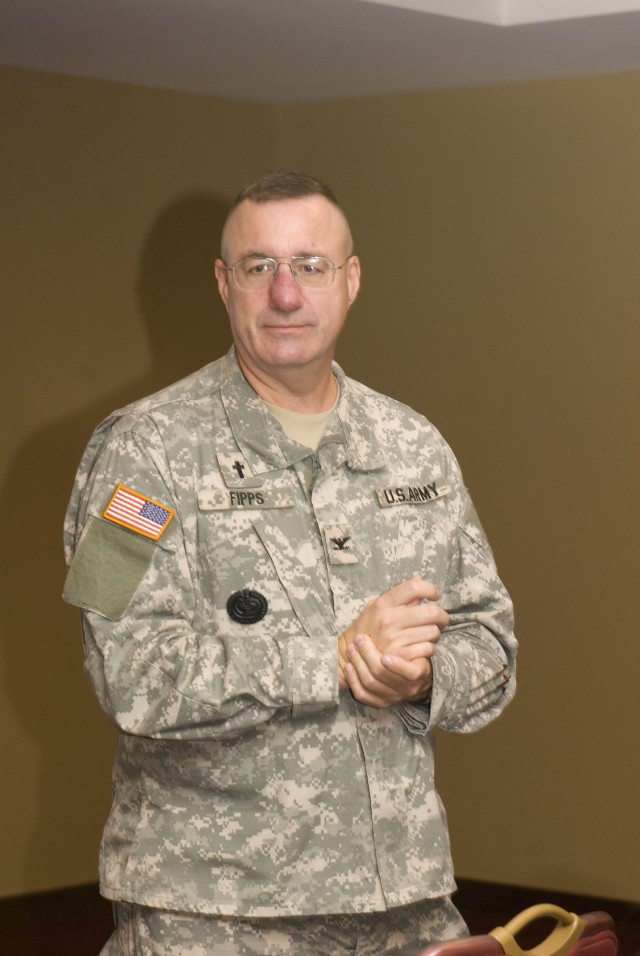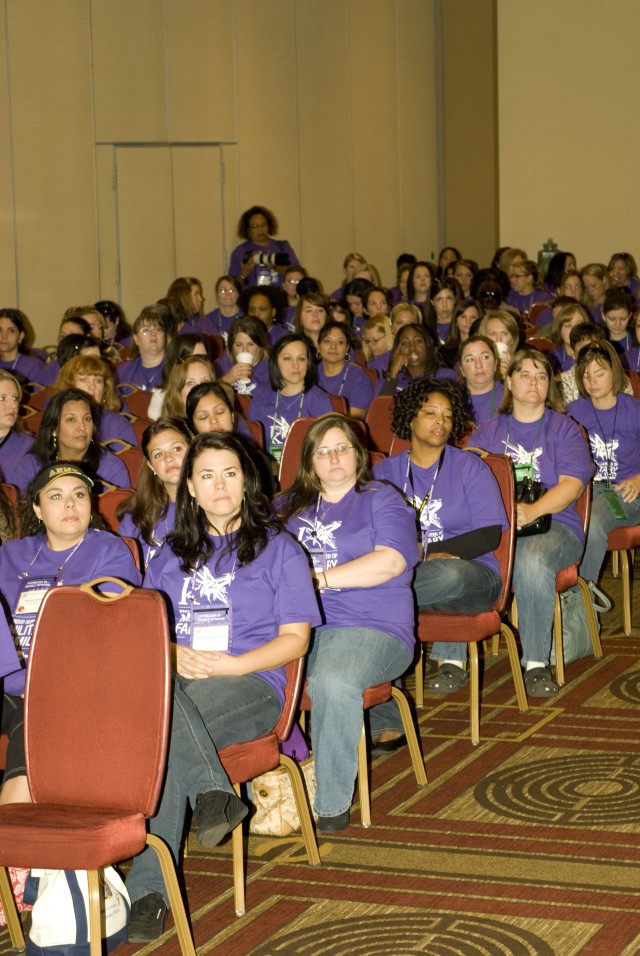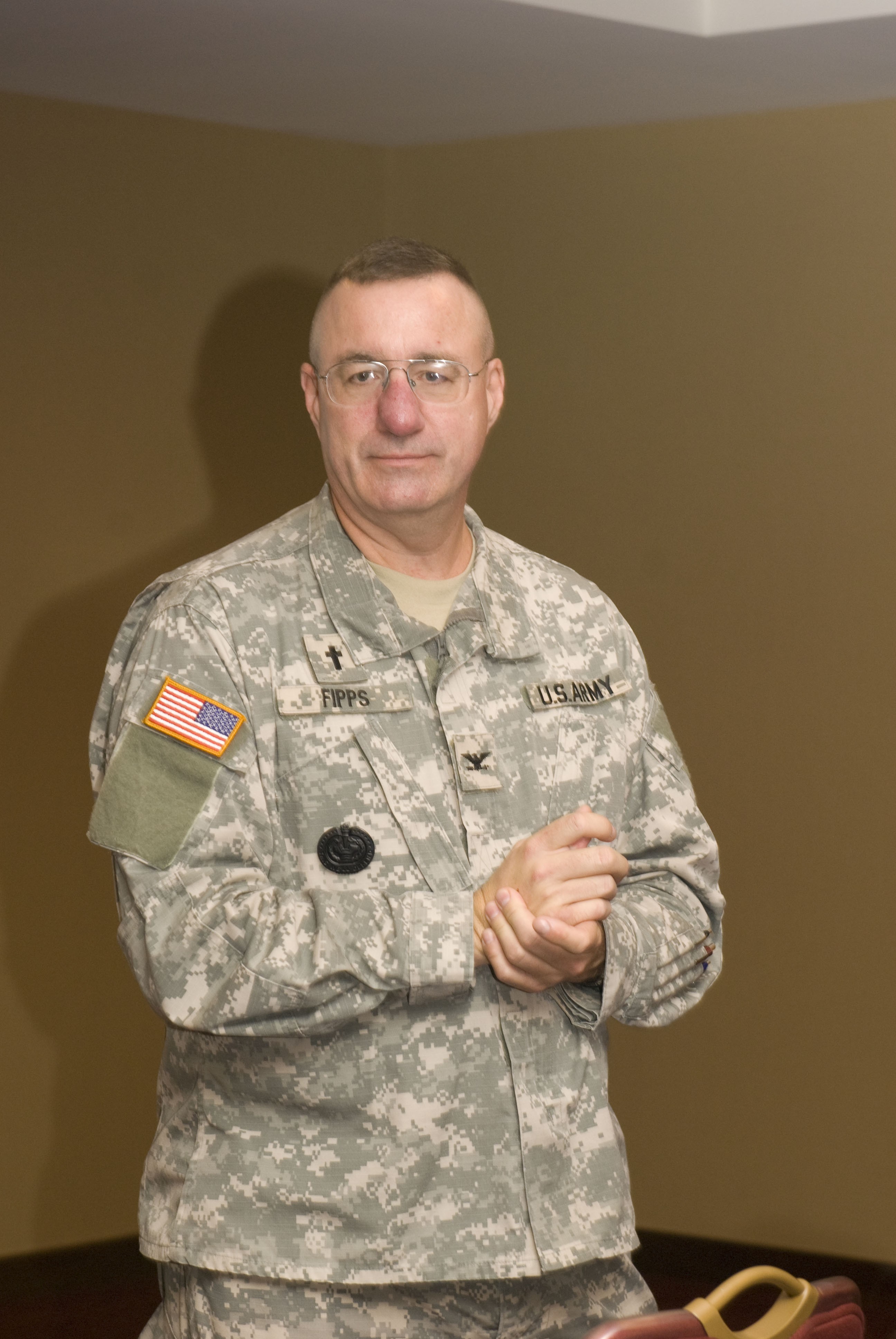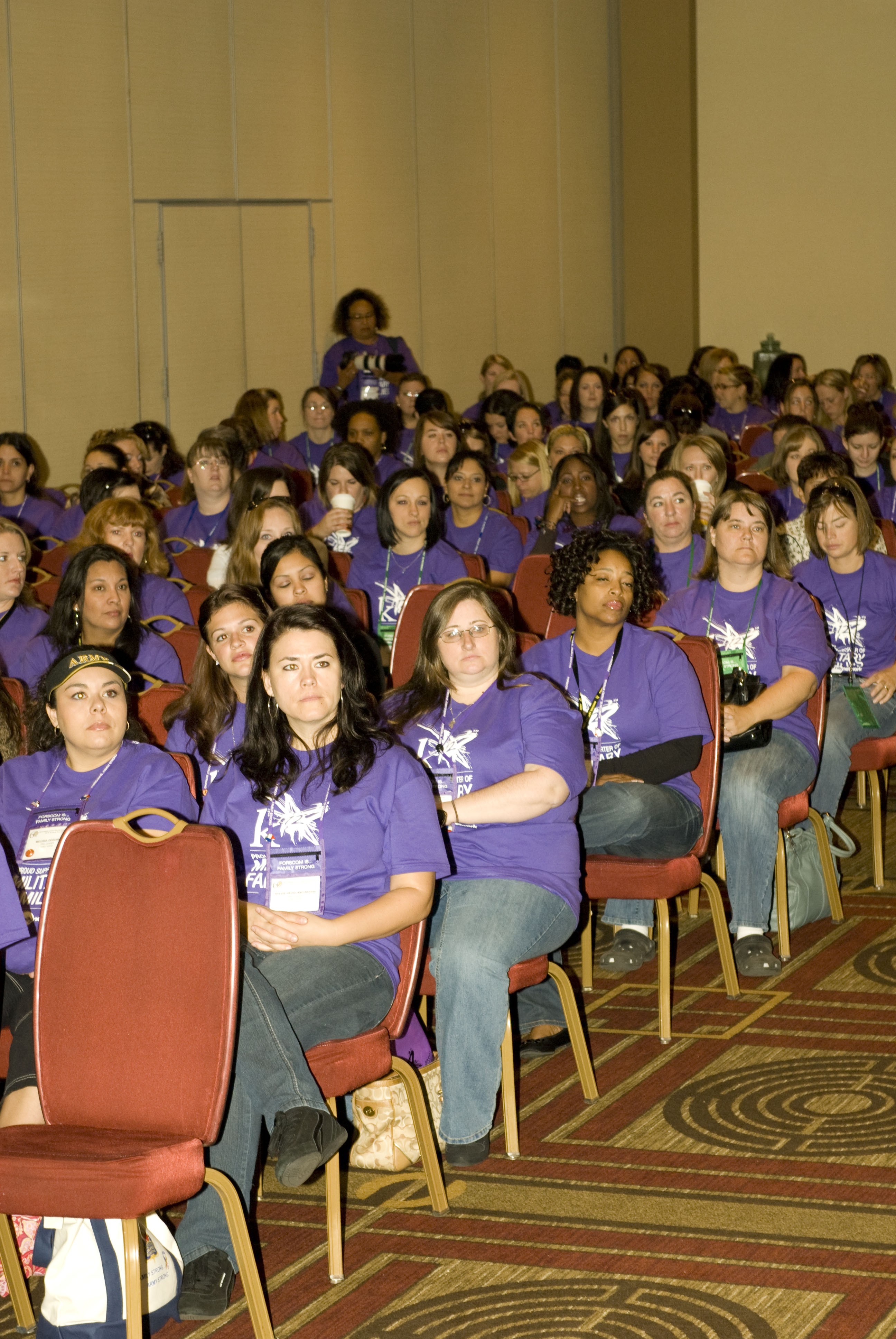CRYSTAL CITY, Va. (Oct. 24, 2010) - U.S. Army Forces Command (FORSCOM) staff chaplain for Soldier and Family Well Being spoke to Family Readiness Group leaders about the role of chaplains in the Army at the third annual FRG Training Symposium Oct. 24 at the Hyatt Hotel here.
Chaplain (Col.) Bradford Fipps explained that there are many reasons for FRG leaders to know the role of the chaplains and what they have to offer to Soldiers and Family members.
The annual FORSCOM-sponsored training event attracted 470 FRG leaders from Army units nationwide this year.
"I'm here to let the FRG leaders know what we (chaplains) do and why we (chaplains) are in the military and that we are here to support them as well as their Soldiers," Fipps said.
"A lot of times FRG leaders aren't aware they can go to their chaplains (just) like their Soldiers can for help and counseling over important issues going on in their lives, and they can enjoy the same kind of confidentiality as their Soldiers," said Fipps.
Fipps explained that it is also allowed for chaplains to attend FRG meetings. It's just a matter of scheduling and knowing that they just have to ask to receive help from their unit chaplains, Fipps explained.
Chaplains are part of the commander's special staff. As such, they advise the unit commanders on all matters relating to religion and the Constitutional right to the free exercise of religion. They also provide spiritual, moral and morale leadership for Soldiers and Family Members. Family Life Chaplains are specifically trained to help with Family issues. They have attended graduate school to earn a master's degree in Family Life Counseling.
"We have the commander's ear and can get a face-to-face with him when we need to and Family Members need to know that, so when there are problems, we can help," said Fipps.
Some services chaplains perform are leading religious services, leading memorial ceremonies, conducting pre-marital counseling and running the "Strong Bonds" retreats.
When a Soldier or Family member visits their chaplain, the entire meeting and everything said is confidential and goes no further than the chaplain.
"Strong Bonds" is a unit-based program supported by the Chief of Chaplains Supplemental Funding. The training is retreat based and proven effective; and it spans the Soldier-Family life cycle of single Soldiers, couples, Family and parenting skills. It also addresses pre and post deployment issues that can affect Soldiers and Families.
As the moment, only Family members enrolled in the Defense Enrollment Eligibility Reporting System (DEERS) may participate in "Strong Bonds," but chaplains are working out ways to get Single Soldiers parents, siblings, grandparents and significant others involved in the program too.
"Most importantly, what everyone needs to remember is that chaplains are a 'friend' when you need to talk, and we are totally and completely confidential," Fipps said.




Social Sharing